Your employer may require you to complete a self-evaluation annually or quarterly.
Self-evaluation is the process through which employees examine their own performance and share the outcome with the managers.
Writing it involves taking your strengths and weaknesses into consideration as well as being self-aware of how these strengths and weaknesses affect your work activities. Your self-evaluation may involve reviewing your accomplishments, setting future goals, and addressing past mistakes. This may also be termed self-performance reviews or self-assessments.
Free Templates
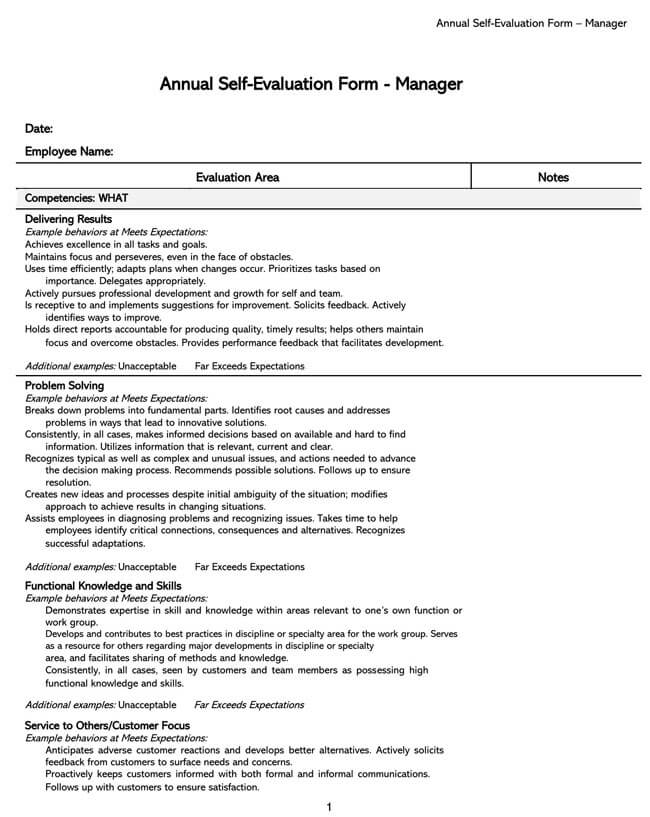
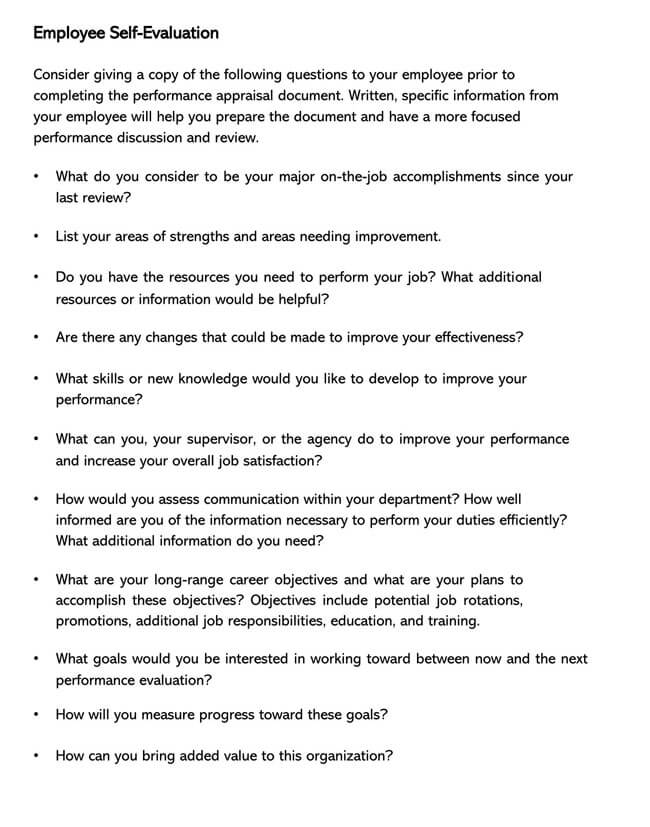
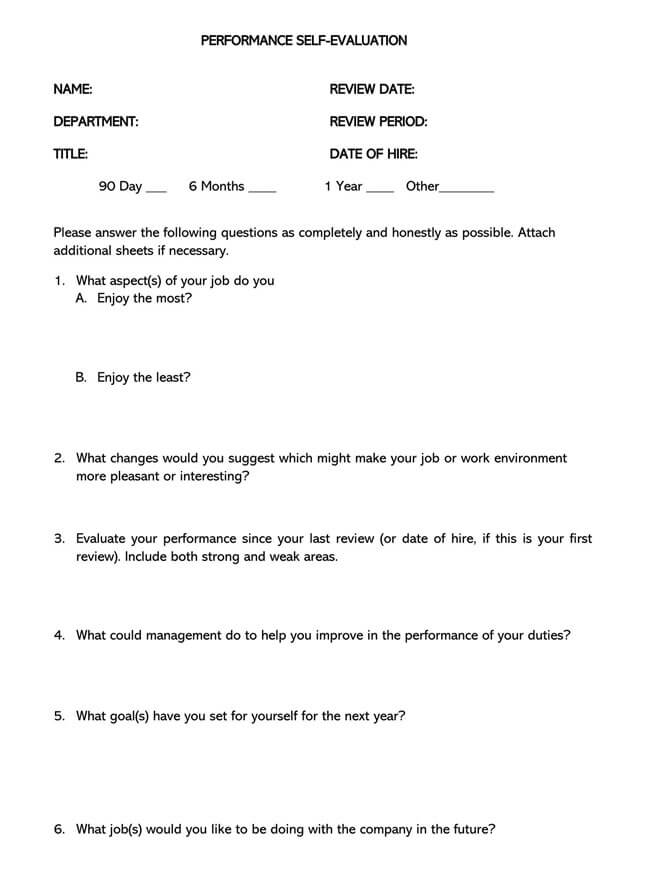
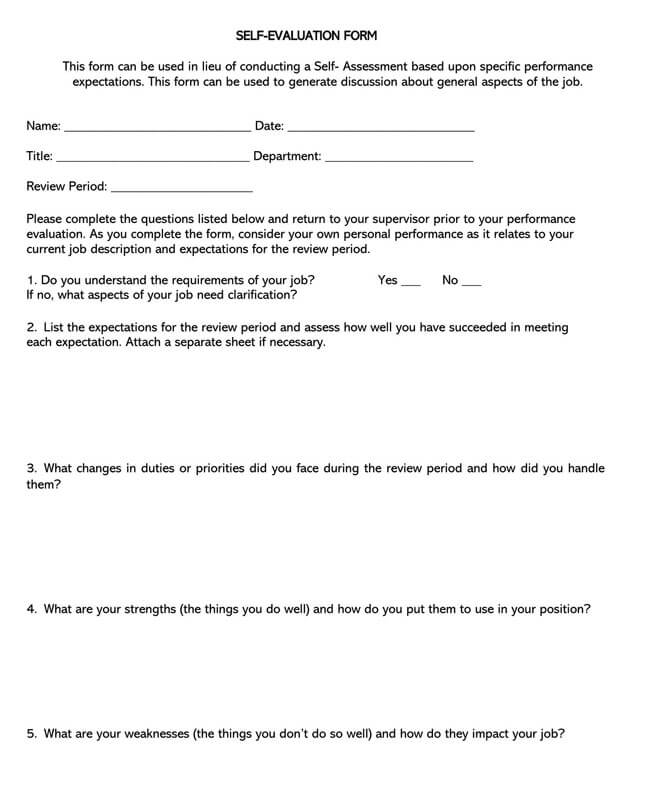
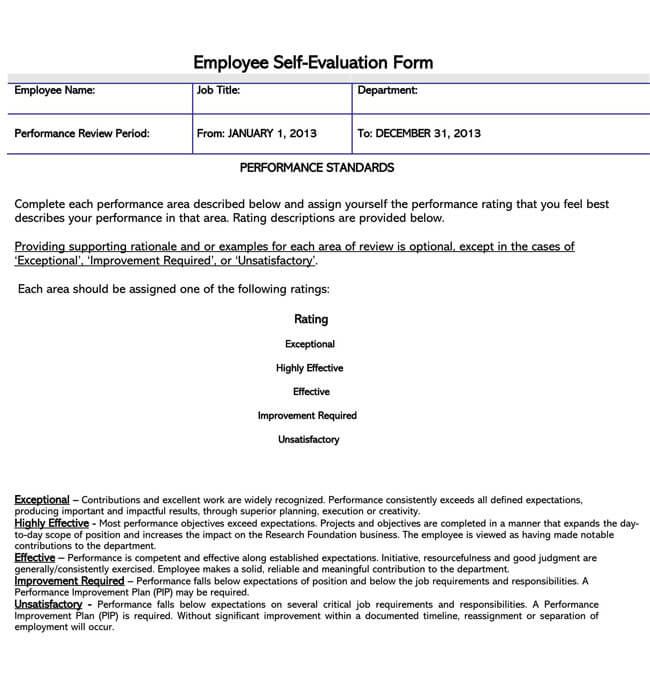

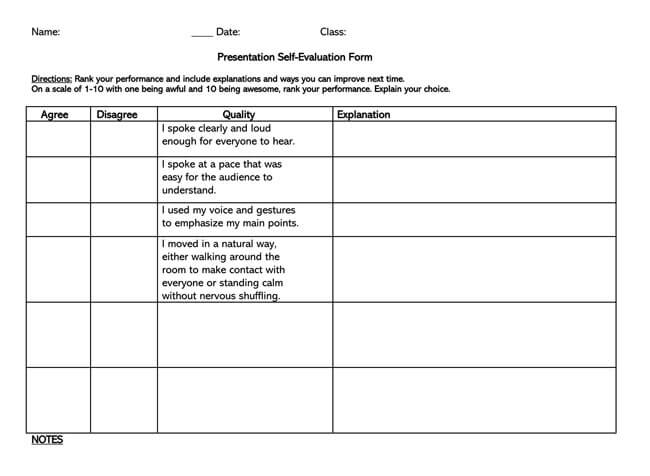
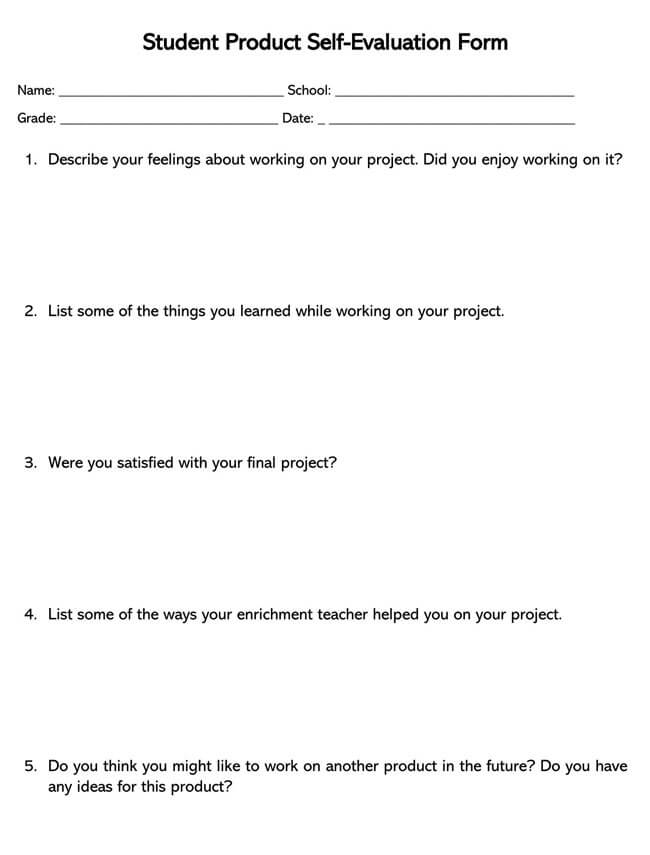
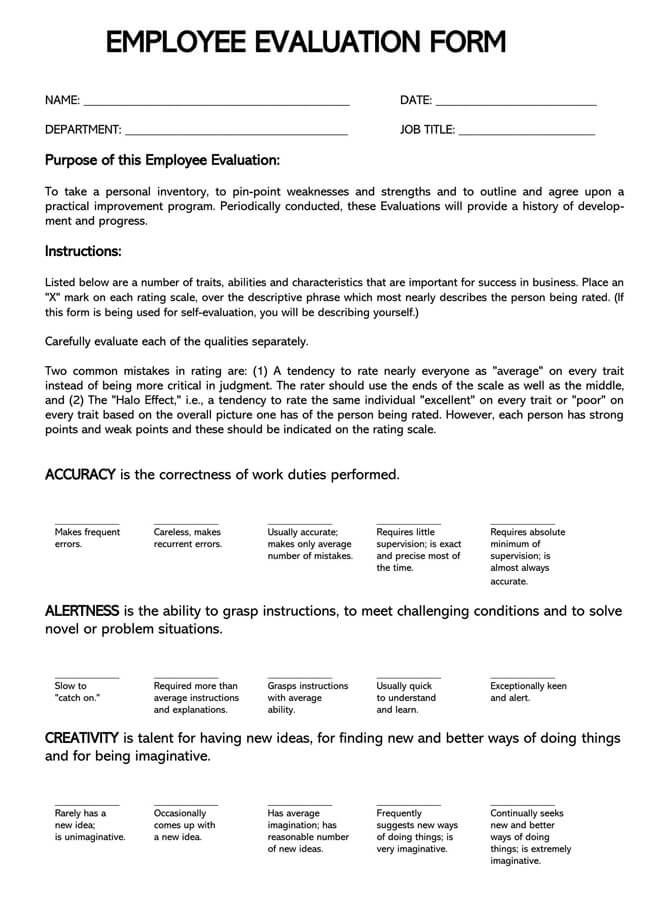
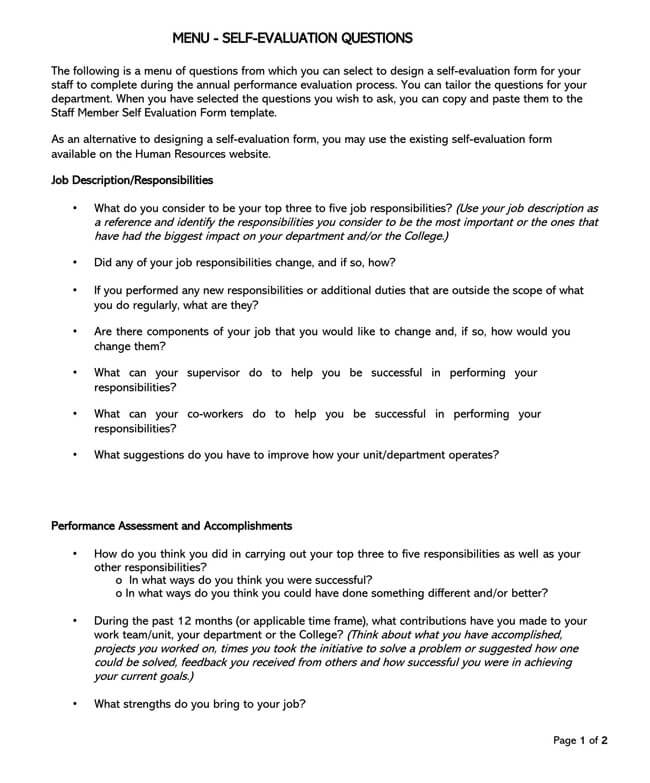
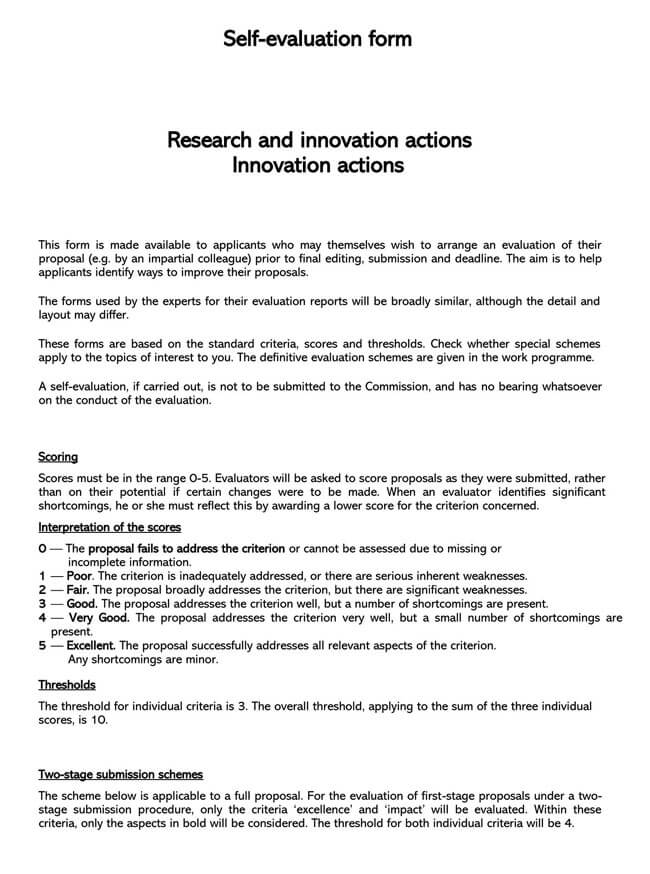
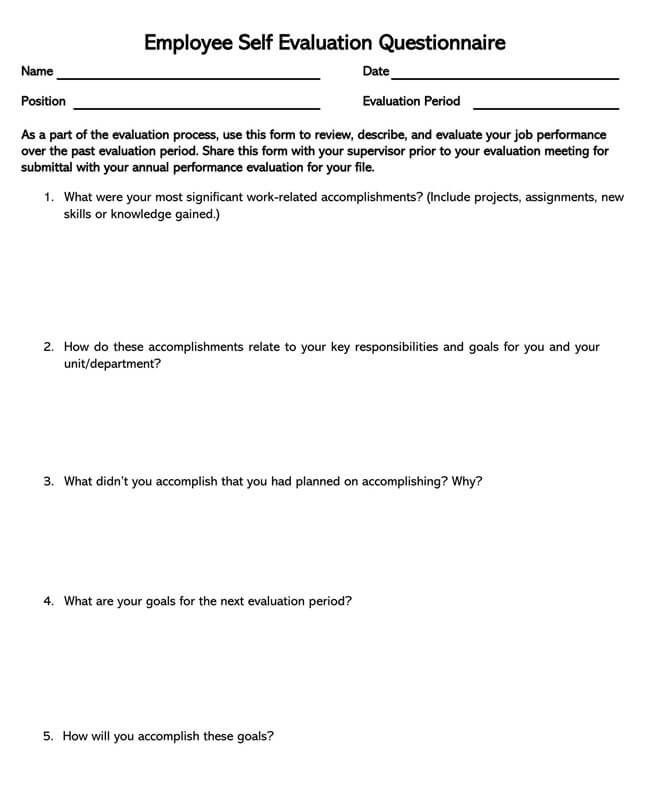
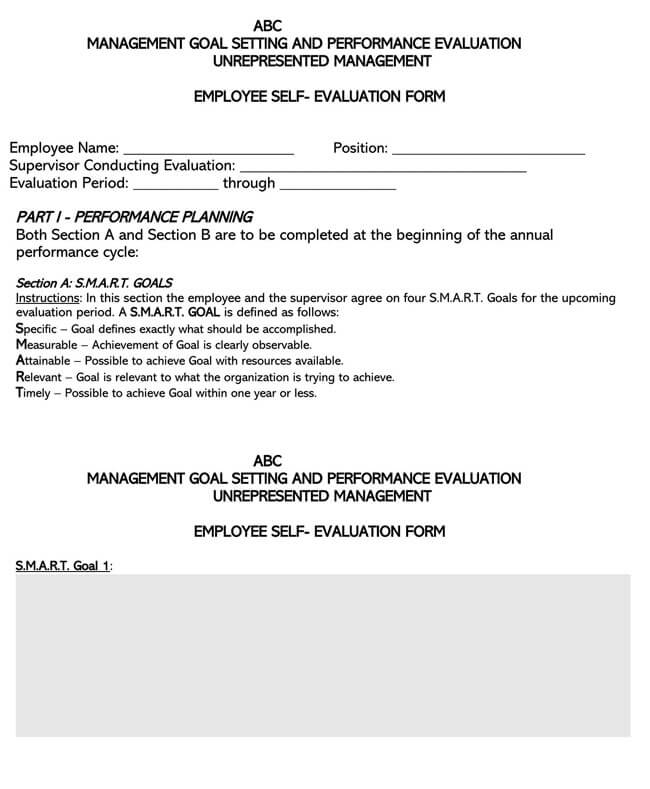
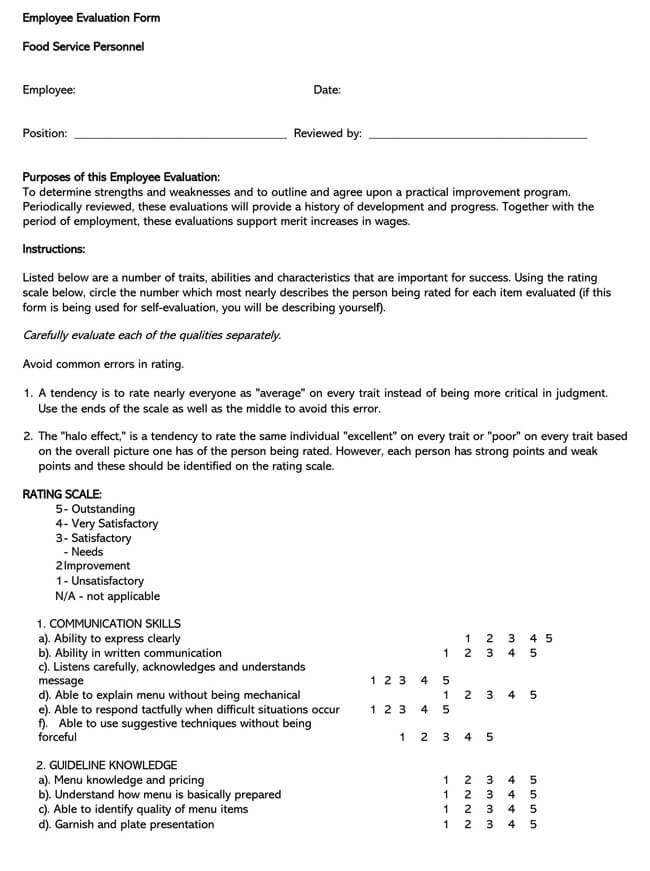

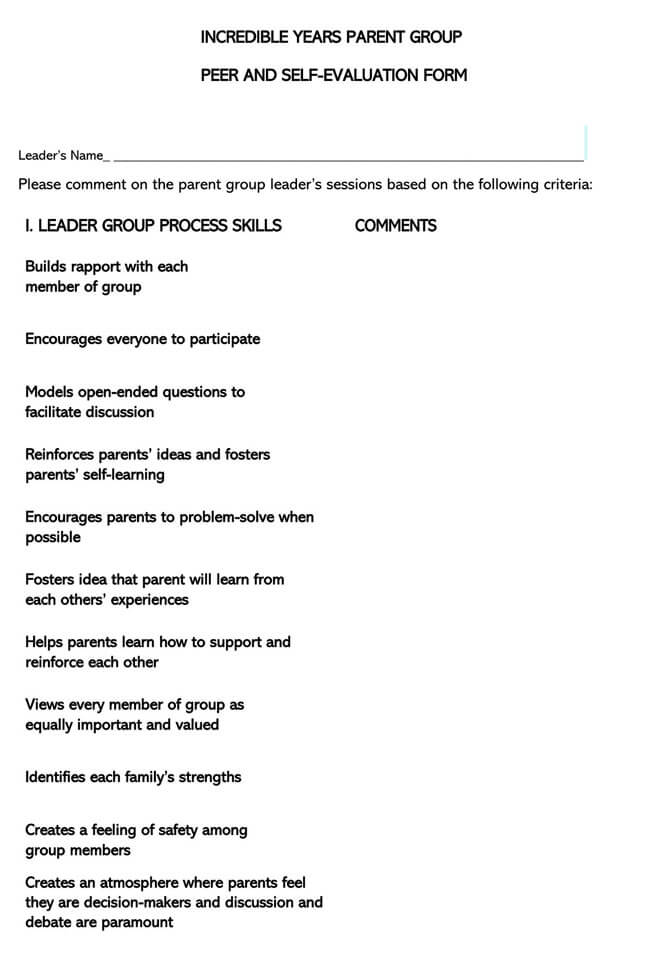
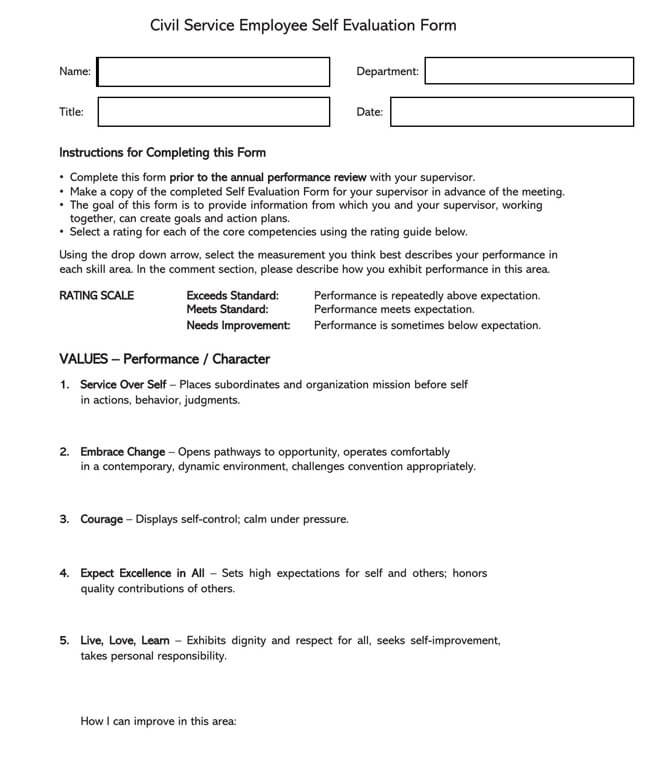
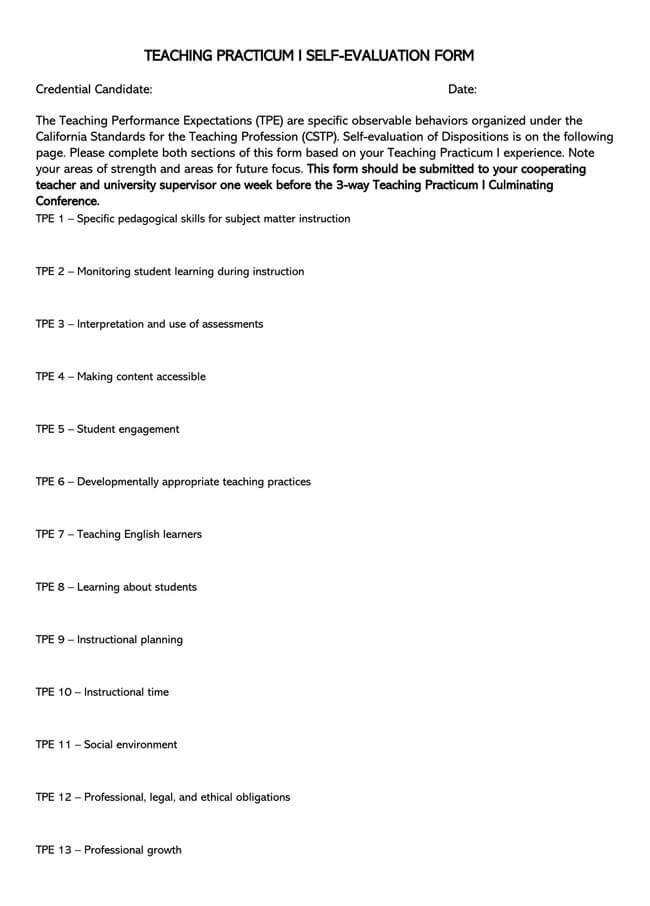
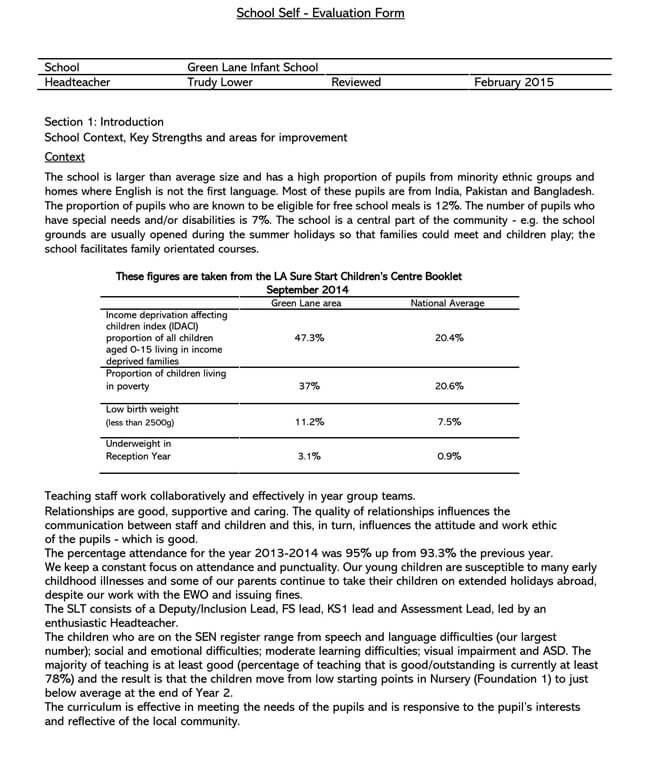
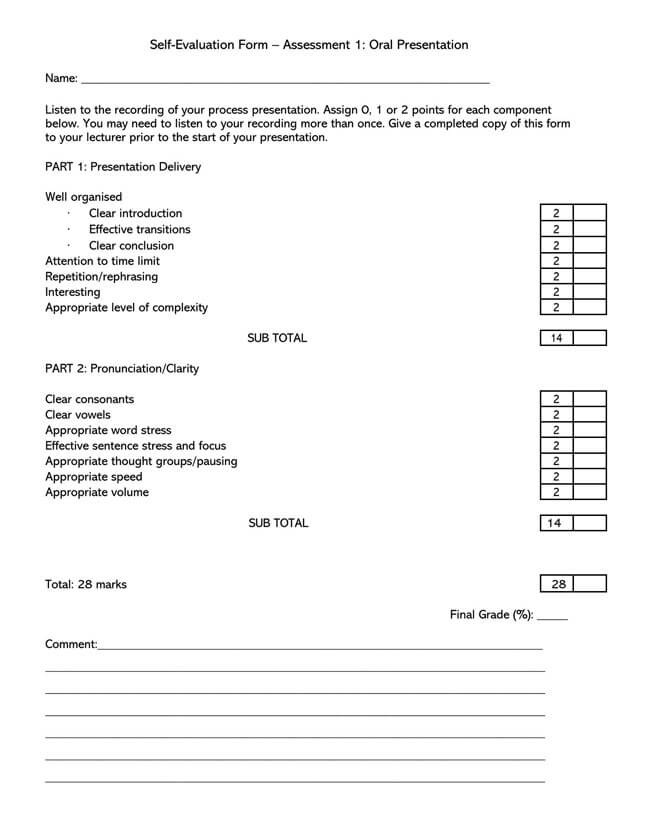
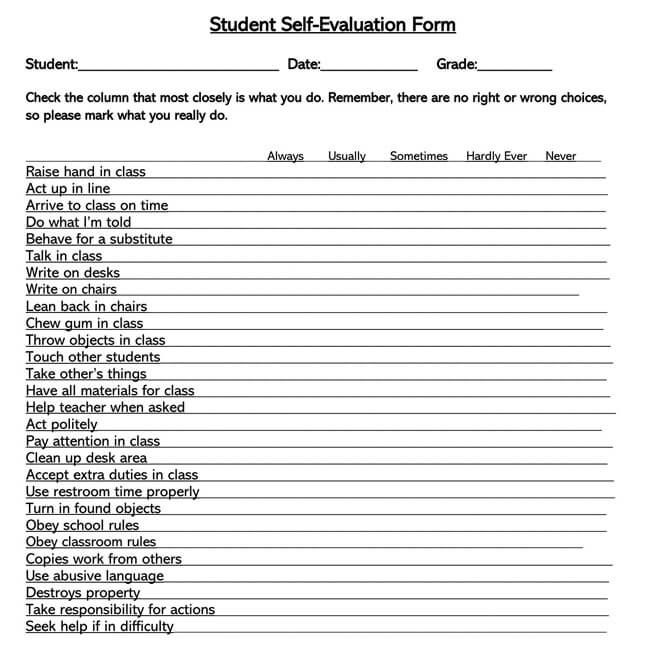
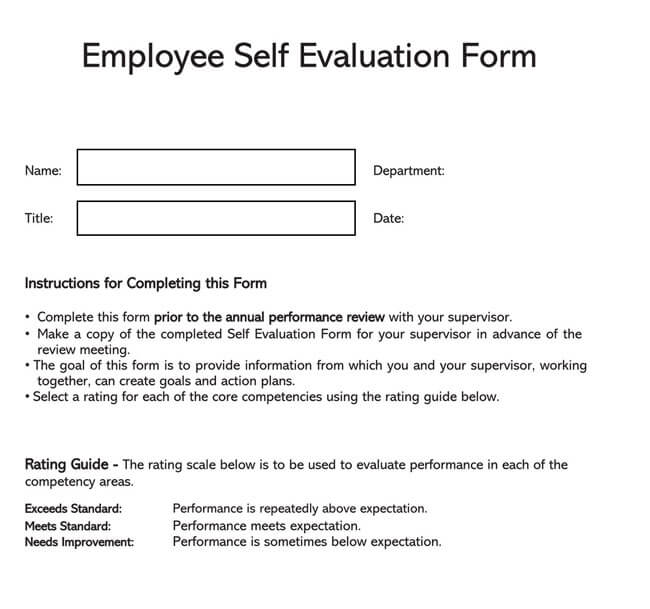
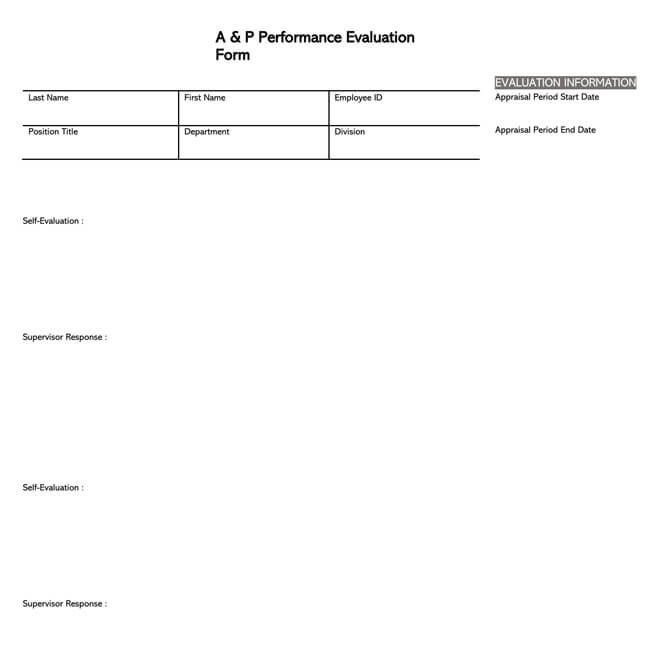
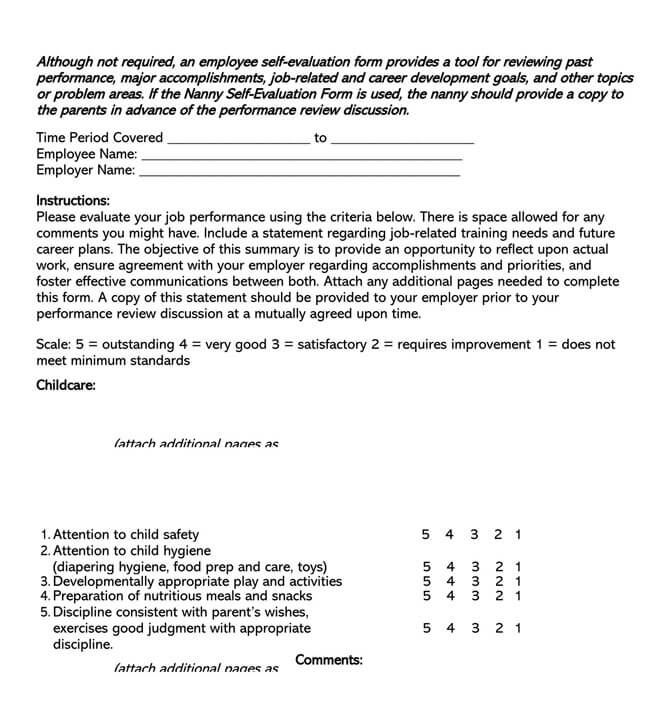
Advantages of Self-evaluation
It offers a lot of benefits for both employer and employee alike. Here are some important advantages:
- Helps employees demonstrate accomplishments: Employees need to regularly share their accomplishments with their employers. Whether completing a challenging project, helping the team, or company meet specific goals, highlighting accomplishments helps employees get well-deserved recognition for their efforts. Highlighting accomplishments also helps employees gain insight into the type of work they find most fulfilling.
- Helps managers to stay informed about your strengths and achievements: It is quite difficult for leaders to keep track of all their employees’ contributions to the team. Remembering individual accomplishments can be quite challenging, especially when some time has passed since the achievement.
When a manager asks you to cite your achievements, it helps them to stay aware of every member’s strengths, values, and skills. - Motivates to embrace the strengths and weaknesses: Reflecting on the work done or tasks you have completed successfully over the past year or quarter makes you more aware of your most successful areas and your more challenging areas in which you need to improve. When you take time to reflect, you can find new opportunities to apply your best strengths while also identifying where you need to apply more skill-building efforts. You may find new uses for existing talents for instance or recognizing a certain area where a lack of skill is undermining your efficiency.
- Helps to quantify your value: Self-evaluation is an excellent method for an employer to reassess your compensation and career trajectory and determine whether you earned a raise or promotion. With it, your employer can pinpoint exactly how you add value to the organization and whether you have demonstrated the necessary skills to take on additional responsibilities. Your employer can set better expectations around whether you qualify for a more senior role or an increase in pay.
Pre-Writing Checklist
Writing your self-evaluation requires a great deal of work, a lot of which is prep work. If yours is a routine one, you would be aware beforehand, and you can be proactive by keeping. Before you begin writing it, there are some things you need to go over to provide a concise evaluation.
Perceive the use of self-evaluation
The first thing you should consider when writing it, is the purpose for which your employer requested it. Also, you should be aware of when your employer intends to use the self-review. The depth to which your self-evaluation should also be in your consideration. You should consider whether it will include analytics. By considering all these, you will get enough information to start off your self-evaluation on a strong note.
List your achievements
Once you understand the context and extent to which you evaluate yourself, you may proceed to list out everything you have achieved for the duration of the self-evaluation, either the past year or the past quarter. At this stage, you should include what you can think of. When you write your review, you can pick out the essentials, however, write out every little achievement you have had for the duration of the review. Be sure to highlight the things you are most proud of as well as the things that have brought the most value to the organization.
Try listing data and analytics
The easiest way to provide a clear picture of your achievements is to provide analytical data and figures. Making a statement like “I was able to increase the number of returning customers” is not quite as compelling as a statement like “I was able to push the number of returning customers up to 50 percent”. Admittedly, it may take some extra time to put your analytical data together, however, this time and effort will pay off. Data and figures solidify the value of your accomplishments.
Jot down your struggles
It is important that your evaluation contains your merits and achievement as well as your challenges. Writing several pages of your successes alone is not a comprehensive evaluation. You should also highlight a few challenges that you face on the job. You need to be comprehensive with these challenges, however, trim your initial list to the major issues you begin to write your review.
Crafting a Self Evaluation
Now that you have written out the important elements to include in your self-evaluation, it is time to craft it.
Follow the steps below to craft your self-evaluation:
Know your audience
You need to find out who is going to be reading your self-evaluation as it provides the context to which you would write. Also, it is important that you know your audience to write a more specific and efficient review. If for instance, you know that your self-evaluation is to be read by a direct supervisor who is already familiar with your work, you probably do not have to define any terms or provide a lot of background information. On the other hand, if your audience is the general manager or the supervisor of another department, you need to provide extensive background information and define technical terms. You may also need to provide a brief personal introduction.
However, if you are unsure of your audience, or if it is company policy to withhold such information, you write an evaluation of yourself to appeal to as wide a range of audiences as possible. The best way to do this is to eliminate jargon and write your evaluation in simple terms.
Mention relative accomplishments
Once you have determined to whom you are writing, you need to make a comprehensive list of achievements. Since your last evaluation. Your list of accomplishments includes any skills that you may have acquired as well as all completed projects and company goals to which you contributed. Once you have written out your list, you need to tailor it down to the only most relevant and significant accomplishments.
Review with your manager and team
You may go over your accomplishments with your manager and other team members to ensure that the data is accurate. If you are providing quantitative analysis of your accomplishments for the past year or quarter, it is best to ensure that your figures are spot on, and the best way to do this is to review the information you provided with your manager and other members of your team.
Your manager probably has an evaluation of his own or a way of keeping tabs on individual performance. You may want to confirm the figures with which your evaluation was represented and mirror these figures in your self-evaluation.
While you summarize your successes for the past year or quarter, it is only normal that you face a few challenges along the way. Endeavor to address any mistakes, challenges, or shortcomings. It is imperative that you review specific areas in which expectations were not met in your opinion. However, never make any excuses. Instead, focus on how you plan to overcome your challenges. If possible, frame your weaknesses as opportunities for growth. By acknowledging your mistakes and suggesting possibilities for self-improvement, you will write a more objective and mature evaluation.
Ask for growth opportunities
In addition to your struggles and how you intend to overcome them, you should also ask for other opportunities for you to flow. Rather than being taken off a project that did not meet expectations in the last year or quarter, ask that you be kept on in order to provide you with an opportunity to grow by overcoming the challenge that impeded your work in the last year or quarter. Such a request shows that you are open and willing to improve yourself and grow as a professional.
Set future goals
The next thing you need to do is to set personal goals, both long-term and short-term. Endeavor to provide specific plans to improve your performance and overcome your weaknesses. Including a general timeline and setting a deadline for when you expect to achieve these goals is a great way to communicate your commitment to achieving your goals. When you establish your goals in your evaluation, you stay accountable and motivated as you work towards achieving your goals.
Give a feedback
The final part of your evaluation is the paragraph in which you provide both positive and negative feedback. In this paragraph, you can acknowledge other employees who have contributed to your achievements during the last year or quarter. Be sure to mention them by name and describe specific instances in which they contributed to your goals and accomplishments. It is normal to take full responsibility for your achievements, however, recognizing others who shared in your success is much better and shows you in a better light to your employer.
Examples of Self Evaluation
Here are a few examples that demonstrate the steps provided above:
EXAMPLEs
Customer service representative
“In the past quarter as a customer service representative for XYZ company, I have improved my customer satisfaction rate by 45%. I recognized the importance of efficiency to the company, and as such I have worked hard to identify and memorize frequently asked questions. By doing so, I was able to cut down my hold time by 30%.
Upon reflecting on my performance, I identified the impact my ability to build a rapport with customers had on my customer satisfaction ranking. I recognized that I have been making calls longer than they should, and to that effect, I plan to decrease my talk time by 20 per call. I believe that this will improve my call-per-hour rate by at least 15 percent in the next quarter.
After my last self-evaluation, I sought to impart my knowledge by serving as a trainee mentor and I have since assisted in on-boarding nine new representatives, all of whom exceeded expectations in their first quarter. Considering this experience and my commitment to improving myself and others around me, I would like to discuss an opportunity to take on more responsibilities as a customer service team leader”.
Marketing manager
“After taking the time to carry out a thorough self-evaluation, I would like to highlight a few of my most significant accomplishments from the past year. At the beginning of the past year, I led the launch of our organization’s first marketing research report. I was also able to secure a speaking engagement for the CMO at two national conferences, which contributed to the company’s industry exposure last year. In addition, I assisted in the overhaul of our paid search program and helped in the procurement and onboarding of a new data partner. Our paid search efforts’ ROI has increased by 130% year over year and has influenced over $7 million in sales of our newest service line.
This year, I recognized that the amount of work I have been delegating to junior members of the team could be greater. I have since passed more projects to the marketing coordinators, improving my efficiency and providing them more opportunities to build their skills and develop their career goals. Also, it is my opinion that a bi-weekly meeting with the sales managers as opposed to a monthly meeting will help the company to improve cross-department communication and ensure marketing campaigns are better aligned with the sales department’s goals.
By the end of the coming year, my goal is to improve my knowledge of UX/UI practices by acquiring the necessary training online. I have been working closely with the UX/UI team and in the past few months and I would love to be able to collaborate more efficiently to achieve the company’s goals”
Software engineer
“I work tirelessly to maintain a positive attitude, especially during challenging projects and less than ideal circumstances. I received a commendation from the Chief Product Officer for maintaining a calm demeanor after I finished the massive fix in July. He commended me and added that my calm demeanor helped to keep the rest of the team focused and on-task. I also represented the XYZ company at a hackathon this summer and attended a networking event where I secured two new clients for the company.
In terms of challenges, I have recognized that I need to improve on my time management skills. I have enlisted the use of time-tracking software to help me identify inefficiencies throughout the workday. I was able to raise my efficiency by over 17% at the time of this evaluation.
I would like to take on more managerial and mentorship skills in my day-to-day work. This will help me develop professionally. Additionally, I plan on taking organizational psychology and emotional intelligence courses. I am confident that I will be able to learn more about setting goals, managing expectations, and motivating people.”
Professional Tips for You
Writing a self evaluation is a sensitive task, and requires careful execution. Your self evaluation should contain certain elements that would catch your employer’s attention.
Here are some professional tips to help you write a great evaluation and help you avoid common errors:
Be specific
Providing exact facts and figures whenever possible is essential. Be sure to avoid vague statements such as “I met my sales quota” or “I provided a positive customer experience” these statements do not provide a clear insight into your performance. Instead, you should cite precise figures based on the metrics that the team or organization considers most efficient.
EXAMPLE
“I have consistently surpassed my monthly sales quota by an average of 15% and finished the last quarter at $30,000 over my target revenue goal.”
It gives a clearer picture of your accomplishments for the past quarter.
Don’t just make a list
It is important that you make a list of your achievements for the period under review. However, you should not just make a list. Your list should be in your drafts, not the final that you turn in to your employer. You are to take points from your list and use these points to briefly describe your accomplishments.
Save plenty of time
Your self-evaluation must not contain any errors and to do that you need to spend a considerable amount of time going over it. You need to set aside plenty of time to go over it a few times. You need to calmly proofread your self-evaluation multiple times to avoid spelling and grammatical errors. You also need to go over the content of your self-assessment to ensure that the information you provided is accurate. In addition, you should double-check your figures to make sure they are accurate. for this, you need to set aside plenty of time.
Analyze the job description
If you are unsure just what to evaluate, your job description is a perfect place to start. You will be able to identify which duties you have excelled in as well as skills you have enhanced and duties you can do better. If you are interested in earning a promotion, you may find it useful to review the job description of the role you wish to be considered for to determine whether you qualify. Even if you do not qualify for the role, evaluating the job you want will help you know how you can begin building the required skills and experience.
Make connections to the company’s goal
It is essential that you demonstrate how your efforts and achievements have contributed to company objectives. It helps you to communicate your value. If you are a team member who wants to make a case for a promotion, this is especially useful for you.
You can make a statement along these lines: “This year, client retention has been the focus of the XYZ company. At the end of the second quarter, I was able to build and launch an email win-back campaign that resulted in over $50,000 in sales from lost customers. Additionally, my win back campaign generated another $30,000 in sales from current customers in the third quarter alone”
Use the STAR method
Many employers suggest that their employees use the STAR method. Even if your employer does not suggest this, the STAR method is an effective way to demonstrate the impact of your work to your employer. With the star method, you simply need to briefly describe the Situation or Task, the Action you took to accomplish it, and the results you achieved.
This simple framework of structuring your self-assessment highlights the specific action you took as an individual and what the outcome of the contribution was.
Review with your manager and team
Getting a second opinion on the information you provide is ideal. You should consult with your manager and other members of your team to go over your self evaluation before you turn it in. Your manager and team members can help you look for any error that you may have missed and help you ensure that you used a constructive and positive tone.
Keep the focus on you
Your self-evaluation is meant to paint a clear picture of your performance for the last period under review, and as such, its focus should remain on you. You may reference significant contributions from other employees or supervisors, however, the primary focus of your evaluation should be you. Avoid blaming others for any challenges or failures. If for some reason, you have a problem with a team member or your supervisor, your self-assessment is not the place to address it.
Try sounding positive
Your challenges are an inevitable part of the job. However, you should never describe your struggles or challenges in a negative light. Rather, use positive language to describe your struggles and challenges on the job. Mentioning challenges is not meant to call attention to your failures, rather, it is meant to show that you are willing to grow. Endeavor to offer up a solution to the problem, it is a good way to sound positive when discussing challenges:
Discouraging Manner:
“I failed to reach several deadlines”
Encouraging Manner:
“Missing several deadlines helped me identify my time management shortcomings and I have since started to create daily task lists to keep me on track”
Put emphasis on the future plans
Typically, evaluation of yourself is a glance at the past, and a reflection on past achievements and challenges. However, it is also a great opportunity to set future goals. Ensure that you finish your self-evaluation by sharing how you will apply your strengths to improve outcomes while also identifying how you will improve upon your weaknesses through education, skill-building, and adopting better
Always proofread
Typographical errors have no place in any official document, much less a self-evaluation. Your evaluation is meant to communicate your value to your employer.it is a way of telling your employer the benefits of keeping you as an employee or even opening possibilities for career advancement. However, if your evaluation is filled with typos, the message may be missed by your employer, who may focus on the error, rather than the content of your evaluation.
Final Thoughts
Self-evaluation is an essential part of your relationship with your employer. It is very useful to help your employer keep track of your professional growth and value to the organization. It is therefore imperative that it should be well written, concise, and objective as this will highlight your qualities to your employer. Get a strong start on writing a great self-evaluation today. Download our templates.




